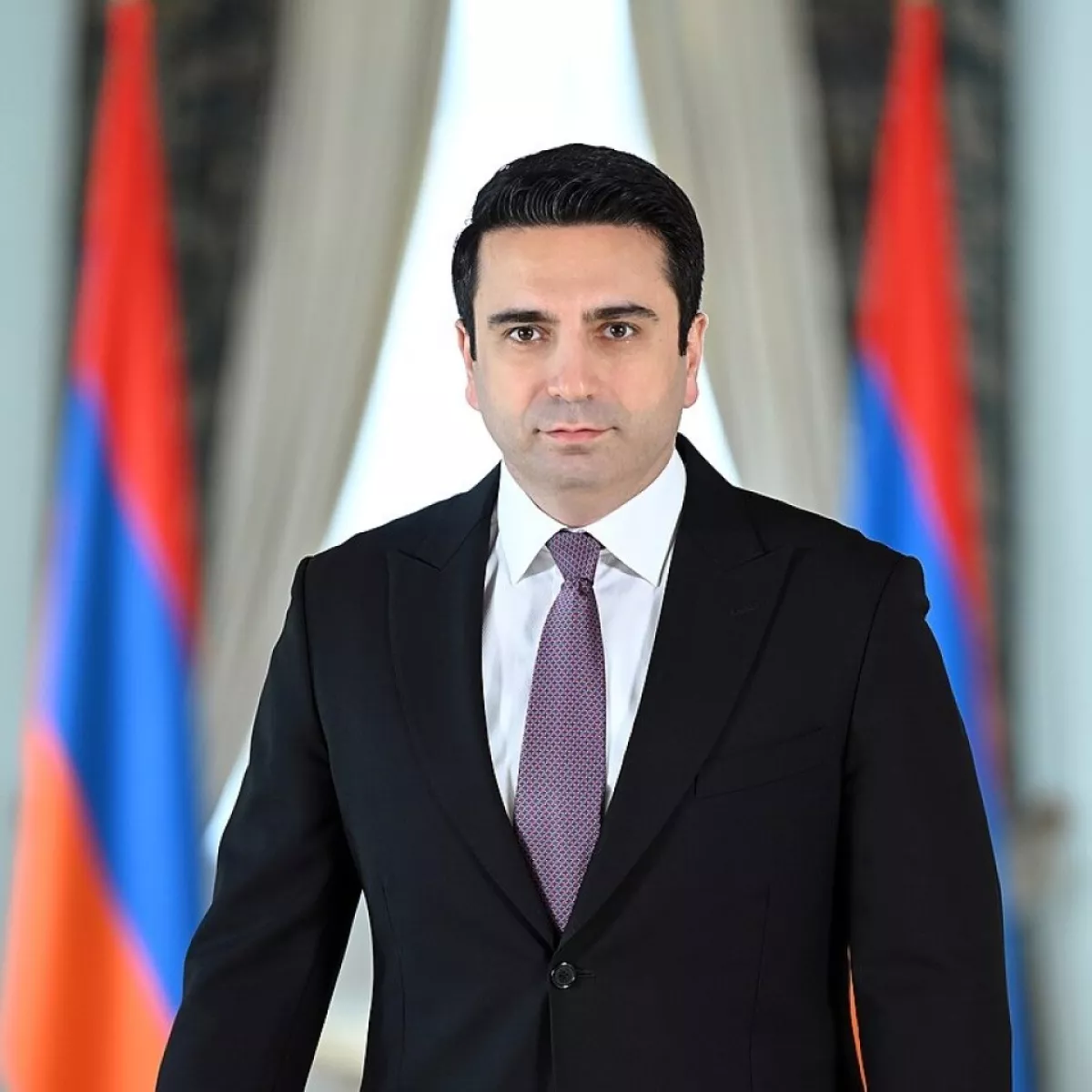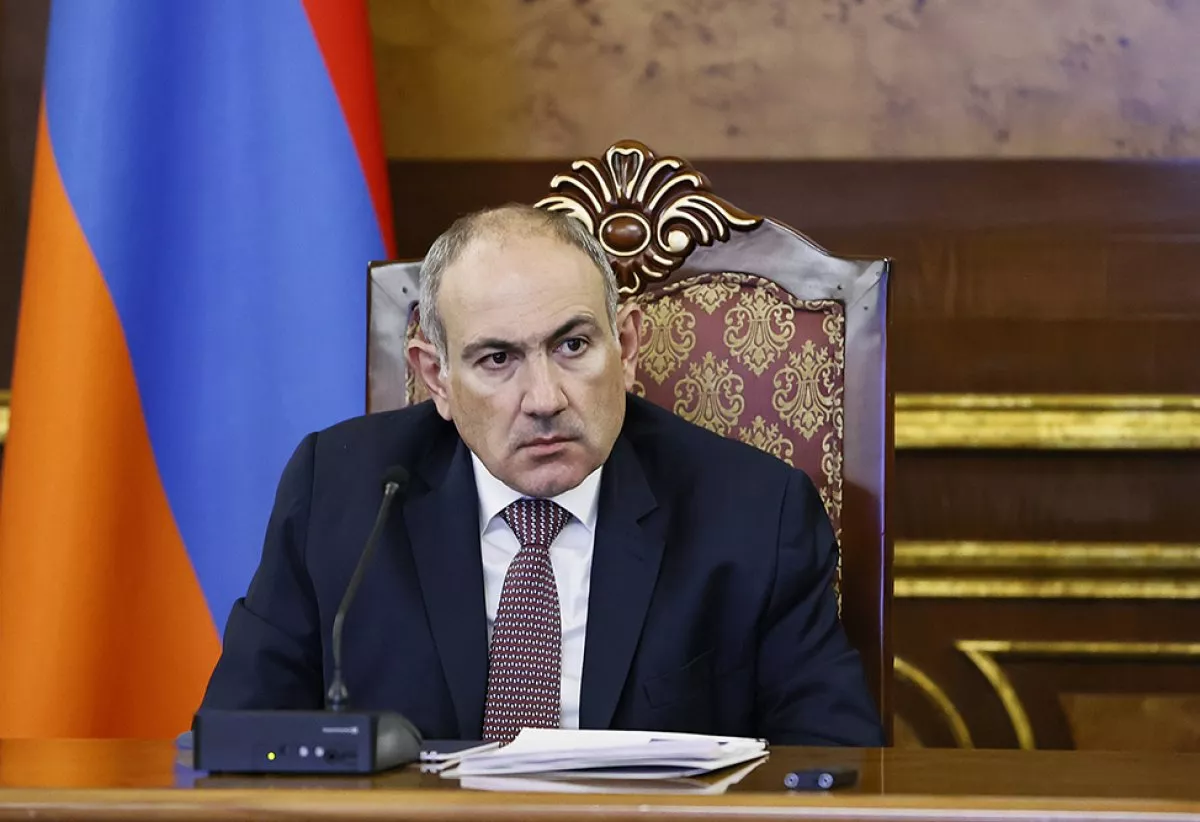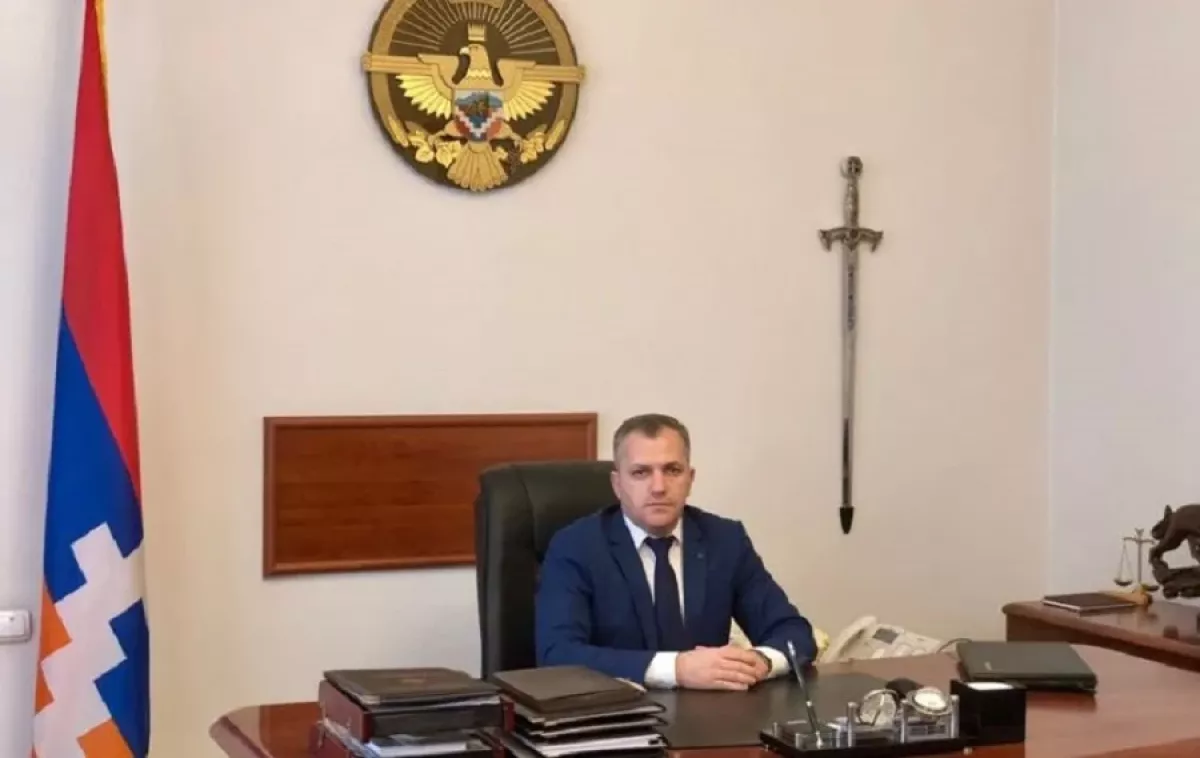Paradoxes of Armenian politics Yerevan between “peace” and escalation
Armenia continues to surprise. Against the backdrop of increasing shelling of Azerbaijani positions by Armenian forces, Armenian officials continue to make optimistic statements about the negotiation process with Azerbaijan, assuring that there is no threat of a new war.

Recently, Speaker of the National Assembly, Alen Simonyan, voiced such a message. In response to a provocative question from a journalist, "Can we, judging by the shots fired from Azerbaijan, consider that the negotiations have reached a deadlock?" he stated that negotiations with Baku are ongoing and have not reached a deadlock.
"Negotiations will not reach a deadlock, and the likelihood of war is not increased by any of the steps being taken. We must do everything possible to ensure that our agenda — which is peace — becomes a reality. Whether shots were fired or not, these are things we, of course, pay attention to, draw conclusions from, but our goal is peace," Simonyan said.
In response to the question about a potential escalation, the Armenian speaker added: "There may not be a single shot fired — and escalation will still occur. There is a main process through which such things are prevented or predicted. Before 2018, there were many shellings, but there was no war. There were numerous casualties on the border, but the situation was different. Now we have a situation where there is an agreed-upon agreement."
The following conclusions can be drawn:
Firstly, the Armenian side, using diplomatic tricks, is attempting to convince the international community that the destabilisation on the border is supposedly provoked by Azerbaijan, which completely contradicts the reality.
Secondly, Yerevan is preemptively shifting the responsibility for any potential escalation onto Baku, while continuing to assure everyone of Armenia's peaceful intentions.

Similar statements were previously made by Prime Minister Nikol Pashinyan, speaking in the Armenian Parliament in April of this year: "There will be no war — there are no grounds for it, there will be peace," he said.
However, in February, Pashinyan had already tried to convince the world community that it is Azerbaijan that "generates threats to Armenia's security." He expressed this absurd idea in an article, justifying Armenia's militarisation as a necessity for reforms in the national army.
"Do the reforms of the Armenian army have anything to do with Azerbaijan? Both yes and no.No, because as I explained above, Armenia has no plan, intention, or goal for any military action against Azerbaijan. Yes, because threats to the security of the Republic of Armenia are generated precisely in Azerbaijan," Pashinyan wrote.
Similar arguments were made by him earlier — in December 2024, in an interview with armenpress.am, attempting to influence the domestic audience: "If Azerbaijan also doesn’t have intentions to attack Armenia, then the likelihood of escalation in the region is zero."
And at the beginning of 2024, in an interview with France-24, Pashinyan even claimed that Azerbaijan was allegedly preparing to attack Armenia and aimed to seize its territories, referring to them as Western Azerbaijan.
Baku, on its part, has repeatedly emphasised that it has no plans to seize foreign territories. Azerbaijan has restored its sovereignty within the framework of international law.
In this context, Armenia, conducting contradictory policies, does not provide guarantees that its current rhetoric in support of a peaceful agenda with Baku will not change in the near future.
The inconsistency of Armenia’s policy is further confirmed by Pashinyan’s recent statement about the intention to put an end to the "Karabakh movement" in Armenia.

A natural question arises: if this is truly the case, why does the office of the "President of Artsakh" still operate in Yerevan, headed by Samvel Shahramanyan, along with the "Artsakh Parliament"?
In Armenia, revanchist forces still exist, supported by former leaders of the Karabakh separatist junta — Serzh Sargsyan, Robert Kocharyan, and their supporters.
If Pashinyan truly intends to follow peaceful initiatives, he will have to deal with eliminating the revanchist structures, securing the support of the population. According to Armenian media, public and political support for the revanchists is not growing, and the Prime Minister’s approval rating remains stable.
If Nikol Pashinyan genuinely wants to open a new chapter in Armenian-Azerbaijani relations, he must fulfil two key conditions set by Baku without delay.
However, Yerevan's promises to dissolve the OSCE Minsk Group and revise Armenia’s Constitution remain mere words. No statement by the Armenian authorities in support of peace will convince Baku of the sincerity of their intentions until real actions follow.








